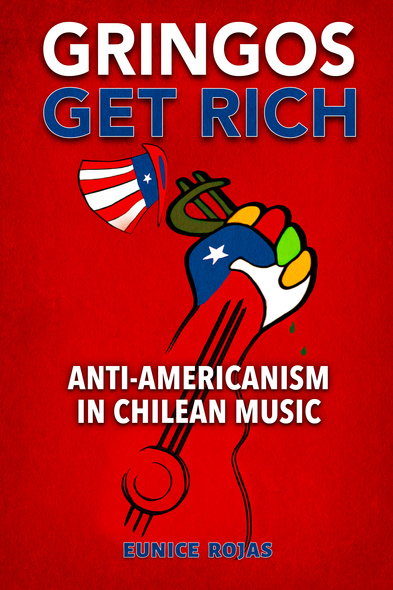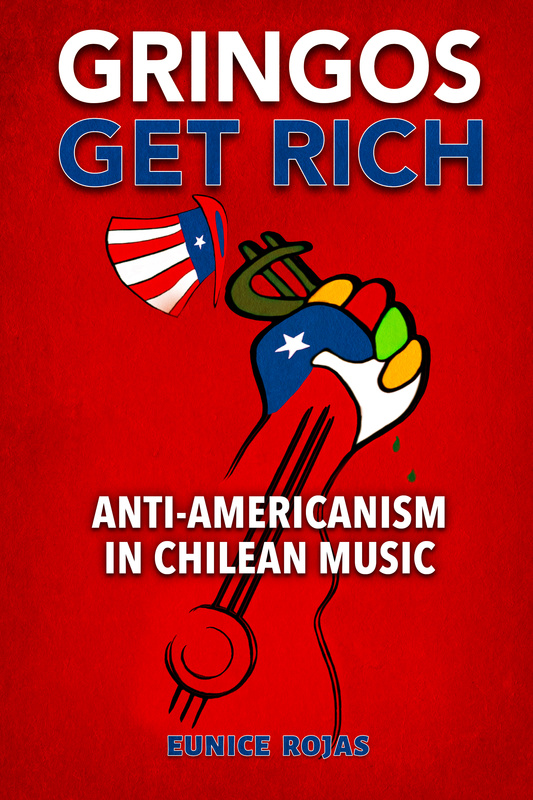Our shopping cart is currently down. To place an order, please contact our distributor, UTP Distribution, directly at utpbooks@utpress.utoronto.ca.

Documents counterimperialism in Chilean music since the 1960s
Gringos Get Rich: Anti-Americanism in Chilean Music examines anti-Americanism in Latin America as manifested in Chilean music in recent history. From a folk-based movement in the 1960s and early 1970s to underground punk rock groups during the Pinochet regime, to socially conscious hip-hop artists of postdictatorship Chile, Chilean music has followed several left-leaning transnational musical trends to grapple with Chile’s fluctuating relationship with the United States. Eunice Rojas’s innovative analysis introduces US readers to a wide swath of Chilean musicians and their powerful protest songs and provides a representative and long view of the negative influences of the United States in Latin America.
Much of the criticism of the United States in Chile’s music centers on the perception of the United States as a heavy-handed source of capitalist imperialism that is exploitative of and threatening to Chile’s poor and working-class public and to Chilean cultural independence and integrity. Rojas incorporates Antonio Gramsci’s theories about the difficulties of struggles for cultural power within elitist capitalist systems to explore anti-Americanism and anti-capitalist music. Ultimately, Rojas shows how the music from various genres, time periods, and political systems attempts to act as a counterhegemonic alternative to Chile’s political, cultural, and economic status quo.
Rojas’s insight is timely with recent political trends toward the right in the Americas. There is also increased interest in and acceptance of popular song lyrics as literary texts. The book will appeal to Latin Americanists, ethnomusicologists, scholars of popular culture and international relations, students, and general readers.
.
This is an original account of how one country sings against another country whose musical, imperial, and imaginary influences shaped its national songbook. And by analyzing the image of the United States in Chile’s unique popular poetics, the book stimulates in the reader’s mind and ears other musical dialogues across the region and the world.’
—Pablo Palomino, author of The Invention of Latin American Music: A Transnational History
'The United States has long exercised outsized influence over Latin America. Chile’s songwriters struck back, says Eunice Rojas. Artists from Violeta Parra to CoN$PiRaCióN took gringos to task for backing a dictator, numbing Chileans with television, and, yes, getting rich off their resources. In nueva canción, punk, hip-hop, and more, a Gramscian counter-hegemonic consciousness arose—and survives in Chile’s recent protests. Rojas’s deep and insightful reading is a triumph of textual analysis.'
—Alan McPherson, author of Ghosts of Sheridan Circle: How a Washington Assassination Brought Pinochet's Terror State to Justice




